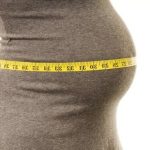During pregnancy, proper nutrition is essential for the health and development of both the mother and the baby. Including salmon in a pregnant woman’s diet can provide a multitude of nutritional benefits that support overall well-being. This article will discuss the importance of maintaining a healthy diet during pregnancy and delve into the specific role of salmon in meeting the nutritional needs of expectant mothers.
Salmon is a popular choice for expectant mothers due to its rich content of omega-3 fatty acids, protein, and vitamin D, all of which play crucial roles in supporting fetal development and maternal health. The omega-3 fatty acids found in salmon are particularly beneficial for brain development in the fetus, with potential long-term benefits for the child’s cognitive function. Additionally, the protein in salmon supports optimal growth and development of the baby during pregnancy.
In this article, we will explore not only the specific nutritional benefits of salmon but also address any potential concerns associated with its consumption during pregnancy. We will also provide practical tips and guidelines for incorporating salmon into a healthy pregnancy diet to ensure that expectant mothers receive all the essential nutrients without any potential risks. So let’s dive into the importance of including salmon in a well-balanced pregnancy diet for the health of both mother and baby.
Nutritional Benefits of Salmon
Salmon is known for being a nutritional powerhouse, especially for pregnant women. This fish is rich in omega-3 fatty acids, protein, and vitamin D, all of which are essential for the health and development of both the mother and the baby during pregnancy. Omega-3 fatty acids are particularly important as they play a significant role in brain development and can have long-term benefits for the child.
The omega-3 fatty acids found in salmon are crucial for the development of the baby’s brain. These nutrients help in forming the brain and eyes, and studies have suggested that they may even have a positive impact on the child’s cognitive function later in life.
In addition to this, protein is vital for fetal growth, making salmon an excellent choice to support optimal development during pregnancy. The high-quality protein found in salmon provides the building blocks necessary for the baby’s growth in utero.
Another key nutrient present in salmon is vitamin D, which plays a critical role in bone health. During pregnancy, it is essential to ensure that both mother and baby receive adequate amounts of vitamin D to support healthy bone development.
Including salmon as part of a well-balanced diet can help meet these nutritional needs. Despite these incredible benefits, it is important to be aware of any potential risks or concerns associated with consuming salmon during pregnancy including mercury content and proper preparation methods to mitigate any potential risks while enjoying its numerous health advantages.
Omega-3 Fatty Acids and Brain Development
Omega-3 fatty acids found in salmon play a crucial role in the brain development of the fetus during pregnancy. These essential nutrients, including DHA and EPA, are known to have a positive impact on cognitive function and overall brain health. Incorporating salmon into a pregnant woman’s diet can offer numerous long-term benefits for the child’s neurological development.
Here are some specific ways in which omega-3 fatty acids contribute to the brain development of the fetus:
1. Neurological Development: DHA, one of the primary types of omega-3 fatty acids, is a key component of the brain and plays a vital role in its growth and functionality.
2. Cognitive Function: Studies have shown that maternal consumption of omega-3-rich foods like salmon is associated with improved cognitive function in children later in life.
3. Vision Development: Omega-3 fatty acids are also essential for the development of the baby’s vision, particularly during the last trimester of pregnancy.
It is important for expectant mothers to ensure they are getting an adequate intake of omega-3 fatty acids from sources such as salmon during pregnancy. This nutrient not only supports the baby’s immediate growth but also lays the foundation for their long-term cognitive and neurological well-being.
Protein for Fetal Growth
Salmon is not only a good source of omega-3 fatty acids and vitamin D, but it also provides a substantial amount of high-quality protein that is essential for the optimal growth and development of the baby during pregnancy. Protein is crucial for building and repairing tissues, as well as for the overall growth of the fetus.
This macronutrient plays a vital role in the formation of the baby’s muscles, organs, and immune system. Incorporating salmon into a pregnant woman’s diet can help ensure that she obtains an adequate amount of protein to support her baby’s development.
The protein in salmon is considered a “complete” protein, meaning it contains all nine essential amino acids that the body cannot produce on its own. These amino acids are crucial for fetal growth and development as they contribute to the formation of the baby’s cells and tissues. Additionally, consuming protein-rich foods like salmon during pregnancy can help prevent complications such as low birth weight or preterm birth.
It is recommended that pregnant women consume approximately 71 grams of protein per day to support their own health and the healthy growth of their babies. Including salmon in their diet can help them meet this daily requirement while also reaping the other nutritional benefits this fish has to offer. Here are some examples of other protein-rich foods pregnant women can consume along with salmon:
- Lean cuts of poultry
- Greek yogurt
- Quinoa
- Eggs
Vitamin D for Bone Health
Salmon, known for being an excellent source of vitamin D, can play a crucial role in supporting the bone health and overall development of the baby during pregnancy. Vitamin D is essential for the body’s ability to absorb calcium, a mineral that is vital for bone formation and growth. Pregnant women should prioritize consuming foods rich in vitamin D, and salmon provides a natural and beneficial source of this important nutrient.
Studies have shown that adequate levels of vitamin D during pregnancy are linked to improved bone health in newborns. The developing baby relies on the mother’s vitamin D levels to support skeletal growth and maintain optimal bone density. By including salmon in their diet, pregnant women can positively influence their own vitamin D status while contributing to the healthy bone development of their babies.
In addition to its impact on bone health, vitamin D has been associated with reduced risks of certain complications during pregnancy, such as preterm birth and gestational diabetes. The consumption of salmon rich in vitamin D presents an opportunity for expecting mothers to enhance not only their own well-being but also the long-term health outcomes of their babies.
However, it is important for pregnant women to be mindful of potential mercury content in fish like salmon and consult with healthcare providers regarding safe consumption levels during pregnancy.
| Nutrient | Benefit |
|---|---|
| Omega-3 Fatty Acids | Support brain development and function |
| Protein | Helps with fetal growth and development |
| Vitamin D | Promotes bone health and overall development |
Potential Risks and Concerns
During pregnancy, it’s important for women to be mindful of any potential risks associated with consuming salmon, such as mercury content and proper preparation methods. While salmon is a valuable source of nutrition during pregnancy, there are certain considerations that need to be taken into account.
Mercury Content
One major concern when it comes to consuming fish during pregnancy is the potential mercury content. Mercury exposure, particularly from larger fish like shark and swordfish, can pose serious risks to the developing baby’s nervous system. However, salmon is categorized as a fish with lower mercury levels and can be safely consumed by pregnant women. It is essential to stick to recommended serving sizes and not exceed the frequency guidelines to minimize any potential risk associated with mercury.
Proper Preparation Methods
Another important aspect to consider when incorporating salmon into a pregnancy diet is the proper preparation methods. Pregnant women should ensure that the salmon they consume is cooked thoroughly to eliminate any potential bacteria or parasites that could harm both the mother and the baby. It’s recommended to avoid consuming raw or undercooked salmon during pregnancy, as it can increase the risk of foodborne illnesses.
Sustainable Sourcing
In addition to concerns about mercury content and preparation methods, pregnant women may also want to consider sustainable sourcing practices when choosing their salmon. Opting for wild-caught or sustainably farmed salmon can help reduce the impact on the environment and support responsible fishing practices. By being mindful of where their salmon comes from, pregnant women can make more informed choices about including this nutritious fish in their diet during pregnancy.
Overall, while there are some potential risks associated with consuming salmon during pregnancy, these concerns can be effectively addressed through mindful selection, proper cooking techniques, and adherence to recommended serving sizes and frequency. By being aware of these considerations, pregnant women can continue to enjoy the nutritional benefits of salmon while minimizing any potential risks for themselves and their babies.
How to Incorporate Salmon Into a Pregnancy Diet
Salmon is a highly recommended food for pregnant women because of its exceptional nutritional benefits. Rich in omega-3 fatty acids, protein, and vitamin D, salmon offers numerous advantages for both the mother and the developing baby. The omega-3 fatty acids found in salmon play a crucial role in brain development, with potential long-term benefits for the child’s cognitive function.
Likewise, the high protein content in salmon supports optimal fetal growth during pregnancy. Moreover, the vitamin D present in this fish can significantly contribute to the baby’s bone development and overall health.
When incorporating salmon into a pregnancy diet, it is important to ensure that it is prepared safely and consumed in moderation. Pregnant women should choose wild-caught salmon over farmed varieties to minimize exposure to potential contaminants like mercury.
Additionally, proper cooking methods should be employed to eliminate any harmful bacteria or parasites that could pose a risk during pregnancy. It is recommended to cook salmon to an internal temperature of 145°F (63°C) to ensure its safety for consumption.
A simple yet delicious way to enjoy salmon during pregnancy is by preparing baked or grilled salmon fillets with a side of steamed vegetables or a fresh salad. Another option is adding flaked cooked salmon into salads or whole grain wraps for a nutritious and satisfying meal. These meal suggestions not only provide essential nutrients but also offer flavorful and versatile ways of incorporating this beneficial fish into a healthy pregnancy diet.
| Nutrition Benefits | Details |
|---|---|
| Omega-3 Fatty Acids | Support brain development of fetus and long-term cognitive function. |
| Protein | Essential for optimal fetal growth during pregnancy. |
| Vitamin D | Promotes baby’s bone development and overall health. |
Recommended Serving Sizes and Frequency
During pregnancy, it’s important to ensure that you are getting the right amount of nutrients to support both your own health and the healthy development of your baby. When it comes to incorporating salmon into your pregnancy diet, it’s essential to be mindful of the recommended serving sizes and frequency of consumption in order to maximize its nutritional benefits while mitigating any potential risks.
Recommended Serving Sizes
The American Pregnancy Association suggests that pregnant women can safely consume up to 12 ounces, or approximately two servings, of low-mercury fish per week. This equates to roughly two fillets of salmon. It’s important to note that portion sizes can vary based on factors such as individual health conditions and dietary needs, so it is always best to consult with your healthcare provider for personalized recommendations.
Recommended Frequency
In terms of frequency, it is generally recommended that pregnant women space out their consumption of salmon throughout the week rather than consuming all 12 ounces in a single sitting. By doing so, you can ensure a steady intake of beneficial nutrients such as omega-3 fatty acids and protein while minimizing any potential risks associated with consuming fish during pregnancy.
It’s also advisable to vary the types of fish consumed throughout the week in order to diversify nutrient intake.
As with any dietary guidelines during pregnancy, it is crucial to stay informed about best practices and recommendations from healthcare professionals in order to make well-informed decisions about including salmon in your pregnancy diet. By adhering to recommended serving sizes and frequencies and seeking guidance from your doctor or nutritionist, you can enjoy the nutritional benefits that salmon has to offer without compromising your health or the health of your growing baby.
Conclusion
In conclusion, the inclusion of salmon in a well-balanced pregnancy diet is crucial for the health and development of both the mother and the baby. The nutritional benefits of salmon, including omega-3 fatty acids, protein, and vitamin D, play a significant role in supporting the overall well-being of expectant mothers and their growing fetuses.
The omega-3 fatty acids found in salmon have been specifically linked to brain development in fetuses, indicating potential long-term benefits for the child’s cognitive function as they grow. Additionally, the protein content in salmon supports optimal fetal growth, while the vitamin D contributes to bone health.
While there are potential risks associated with consuming salmon during pregnancy – such as mercury content and proper preparation methods – these concerns can be effectively addressed by adhering to recommended serving sizes and safe cooking practices. By following guidelines on how much salmon to consume and how frequently to include it in their diet, pregnant women can maximize the nutritional benefits without exposing themselves or their babies to any potential risks.
In summary, incorporating salmon into a pregnancy diet is an excellent way for expectant mothers to obtain essential nutrients that support both maternal health and fetal development. With its array of valuable nutrients like omega-3 fatty acids, protein, and vitamin D, salmon can be a valuable addition to a nourishing pregnancy diet.
It is important for pregnant women to consult with their healthcare providers about their individual dietary needs during pregnancy, including incorporating salmon into their meals as part of a well-balanced nutrition plan tailored to support a healthy pregnancy journey.
Frequently Asked Questions
Is Salmon Healthy to Eat During Pregnancy?
Salmon is considered a healthy choice for pregnant women due to its high Omega-3 fatty acid content, which is beneficial for the baby’s brain and eye development. It also provides important nutrients like protein, vitamin D, and B vitamins that are essential during pregnancy.
What Is the Healthiest Fish to Eat While Pregnant?
The healthiest fish to eat while pregnant are those that are low in mercury and high in omega-3 fatty acids, such as salmon, trout, herring, sardines, and anchovies. These fish provide important nutrients without posing a risk of mercury contamination.
What Fish Are High in Mercury While Pregnant?
Fish that are high in mercury and should be avoided or limited during pregnancy include shark, swordfish, king mackerel, tilefish, and bigeye tuna. Mercury can negatively impact the baby’s developing nervous system, so it’s important to be cautious about consuming these types of fish while pregnant.

Welcome to my fertility blog. This is a space where I will be sharing my experiences as I navigate through the world of fertility treatments, as well as provide information and resources about fertility and pregnancy.





